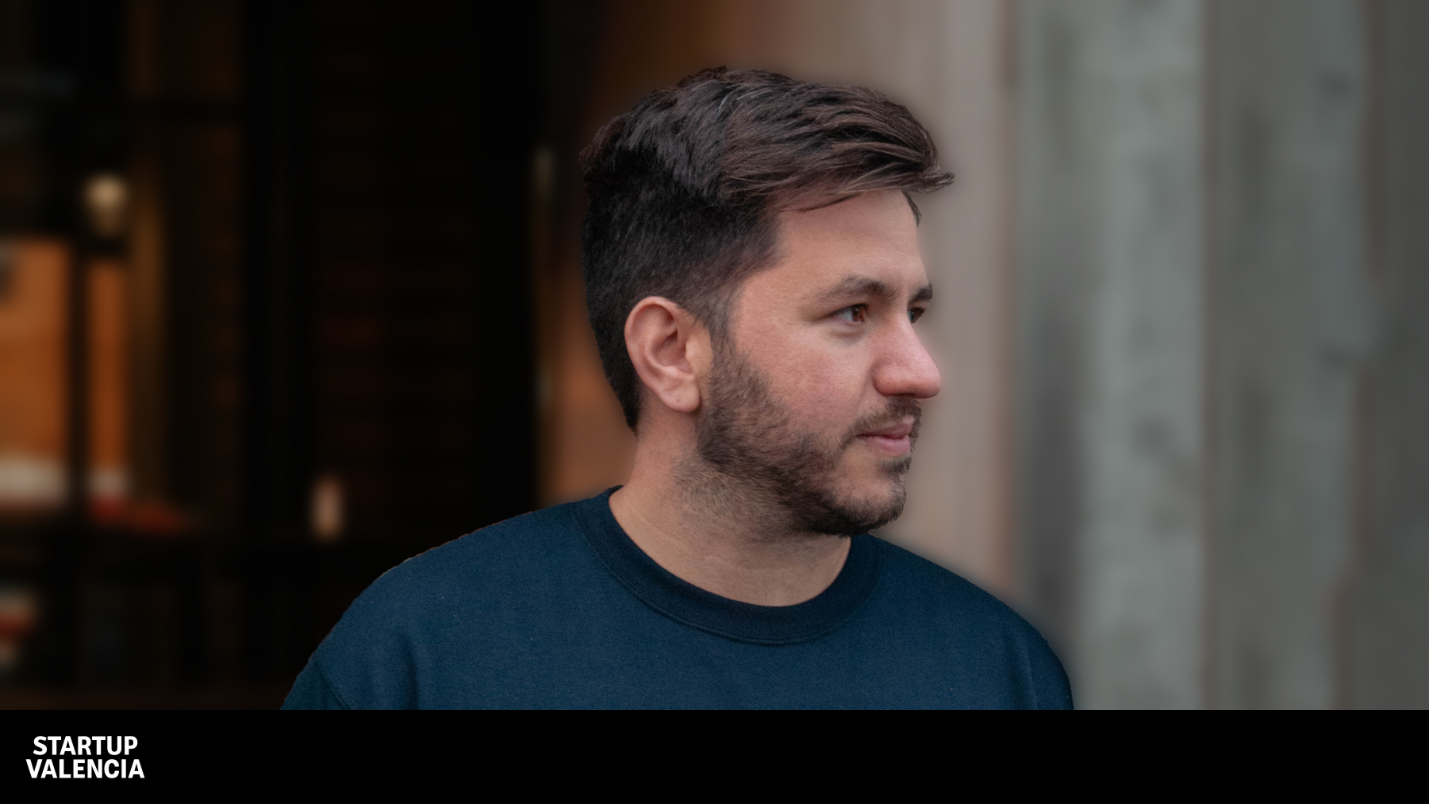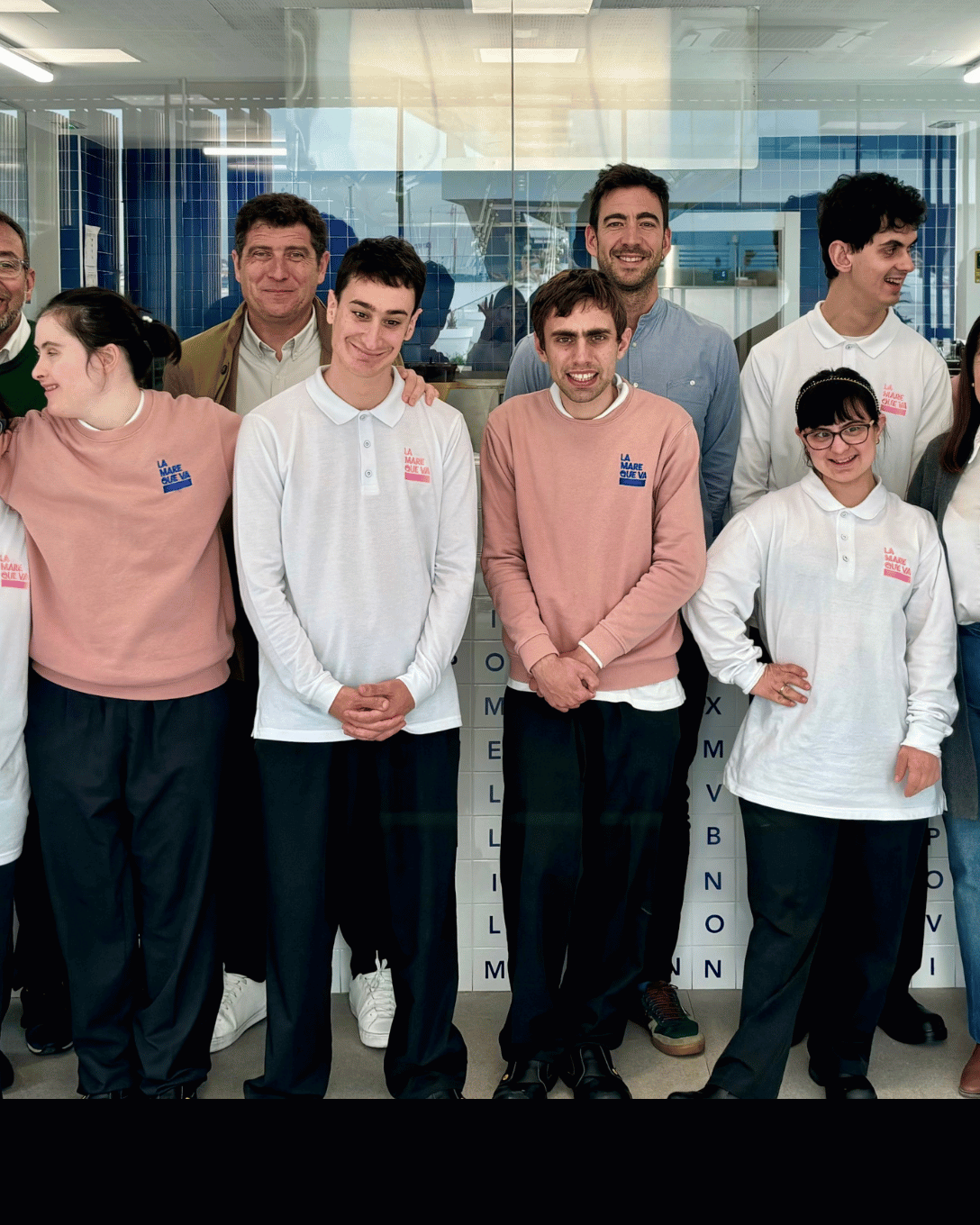Fresh People, the startup that helps innovative companies evolve their talent management, has experienced remarkable growth, going from a turnover of €80,000 to projecting a revenue of over €2.5 million by the end of the 2023 fiscal year. They operate in over five countries, promoting efficient, scalable, and real-time talent management through their integrated software and services.
Driven by the example of his grandfather, José J. Burgos, the founder and CEO of Fresh People is deeply committed to continuous improvement and surrounding himself with a team that shares his vision for the organisation.
How did the idea of founding Fresh People come about?
I was fortunate enough to have a grandfather who was one of the first Human Resources directors in Spain. He always had an innovative approach to managing the relationship between companies and employees, going beyond the conventional ideas and prioritising the importance of listening to both parties in order to align their goals and generate value-added solutions.
Fresh People is my way of carrying on his legacy. In today’s rapidly changing business context, effective people management has become increasingly important as it is the channel through which business happens.
In addition to providing advice on how companies can manage their teams effectively, you also manage your own team.
Of course! With nearly 30 employees in a rapidly growing environment, managing our team has become increasingly complex. However, this also provides us with the opportunity to apply our own solutions.
And is it easy to be aligned in your company with what you suggest as a consultant?
We have a unique advantage in that we experience many of the same challenges as the companies we work with. This allows us to empathise deeply with our clients and develop solutions that are truly effective in addressing their needs. Our service and software offerings are closely intertwined, and by experiencing the challenges of managing our own team, we are able to create more robust and practical solutions for our clients.
My feeling is that as we continue to grow as a company, our internal challenges and reflections will only lead to better solutions for our clients.
How have you lived the growth you have experienced in these three years?
Growth always comes with its own set of challenges, both at the economic level, where the company must invest to grow effectively and sustainably, and at the human level, where the focus is on attracting, aligning, developing and accompanying the new talents who bring new ideas and knowledge that drive the organisation’s evolution.
For me, it has been relatively easy because my premise is to always hire people who are much better than me. This ensures that we are all constantly evolving and learning, never becoming stagnant.
Regarding our economic evolution, we have gone from a turnover of less than €80,000 in 2020 during the height of the pandemic to anticipating a turnover of over €2.5 million this year.
How are you dealing with this huge leap?
The key is not to be afraid to hire relevant and powerful people for the company, and most importantly, to ensure that they share the same vision and values as you. I think this has been the foundation of our success at Fresh People, as we have been fortunate enough to attract individuals who not only share our values, but also have a similar understanding of what the company represents, making everything else much easier to manage.
You mentioned that your grandfather was a pioneer in redefining the relationship between organisations and their employees. Is the business world convinced of the importance of human capital?
I have my own headline for this: “To achieve 21st century results, we must adopt 21st century people management practices.”
Organisations are waking up to the fact that in order to achieve and sustain optimal results, they must evolve their approach to managing their teams. This means seeking out individuals with different skill sets and concerns, and implementing a management style that is markedly different from traditional methods in Spain. Thankfully, this shift in mentality is happening at an accelerating pace in many companies.
The business world is becoming more receptive to changing its management practices, recognizing the critical importance of effective people management in today’s rapidly evolving landscape.
What is your working method like?
One aspect that sets us apart is our methodology for working on different areas of people management, which involves linking services and software. By using this approach, we can identify the challenges companies face and develop new frameworks for action that address those challenges.
Our methodology consists of three phases: first, we identify and develop these action frameworks; second, we determine how to integrate them into day-to-day operations; and finally, we use technology to simplify the integration process as much as possible and reduce cognitive load for employees.
Currently, we are also working on an artificial intelligence layer that proactively helps companies improve their processes, and we have been dedicating the last five months to this effort.
In recent times we keep hearing that there is a lack of talent. How can talent be retained in these times of change?
It is worth noting that talent cycles in companies are now much shorter than they used to be. A success within a company could be considered achieving a four or five-year cycle, as opposed to a 20-year cycle in the past.
Furthermore, it is crucial to understand that it is not about retaining talent, nor is it about retaining customers. Instead, the focus should be on building customer loyalty and creating a culture and environment that inspires people to want to stay and grow in the company.
The challenges we face today include how to foster personal and professional growth within the organisation, how to develop managers who can provide quality feedback, enable learning and growth, and align personal goals with company goals, and how to recruit individuals who share the company’s values and purpose.
In terms of work organisation and the transmission of corporate culture, one of the most important challenges is that of remote working and digital nomads.
This is a significant challenge and it requires us to reevaluate what we mean by organizational culture and how it is created.
The truth is, if you don’t intentionally manage the culture of your organization, it will still develop, but it may not align with your goals and values. When working in person, there are more opportunities to shape and manage this culture. The challenge now is to find ways to create those same opportunities and spaces for culture building when working remotely.
How can companies do this without forcing these spaces at the remote level?
This fundamental principle remains the same in remote work: trust. Organisations must continue to focus on building and strengthening trust among all members.
This involves demonstrating a commitment to creating safe spaces where people can communicate and share ideas freely. While it may feel forced initially, over time it becomes more natural and organic.
While it may have taken time to develop these skills in person, the same principles can be applied in a remote work setting.
Your clients include large multinationals such as Inditex. Is it possible to compete from Valencia with the business networks of Barcelona or Madrid?
The innovative business ecosystem in Valencia is becoming increasingly attractive and exciting. And, it is friendly. From my point of view, what sets it apart is its collaborative nature rather than a focus on competition. The emphasis is on contributing to the growth of the region by providing solutions, establishing new companies, building innovation centres, and creating spaces for collaboration. Also, sharing them with Madrid, Barcelona and Malaga so that in the end we all have this capacity as a country to have different centres where things happen.
Valencia is not only attracting homegrown startups but also big companies are bringing their headquarters or departments to the city, validating the commitment to the growth of the region. It is a source of pride to witness the welcoming attitude of the Valencian business community towards companies and their willingness to collaborate. As a company, we have our headquarters in Valencia and offices in Madrid, Barcelona, and Miami, demonstrating our commitment to be part of the growth of Valencia and the country as a whole.
How did the idea of opening an office in Miami come about?
It was a coincidence. After successfully selling our services in some European capitals, we realised the need to explore opportunities in the United States and Latin America.
We first signed an agreement with Endeavor Miami to establish a presence in the region. Then, we started participating in various trade missions organized by the Valencian Government and Startup Valencia. Over time, we developed our own network of investors, collaborators, partners, and clients, which helped us expand in this direction.
Miami is an ideal place to learn and build connections. However, penetrating the US market as a Spanish company is a significant challenge that requires persistence and a long-term commitment.
A couple of years ago you decided to support the Valencian innovation ecosystem by collaborating with Startup Valencia. What is your assessment? It must be positive because you are renewing your commitment.
We feel deep gratitude. For us, Startup Valencia has been the place where we could meet and feel like a startup that could collaborate and share with others.
The mission pursued by Startup Valencia to make the Valencian ecosystem innovative and a reference point, and to provide a more fertile ground for the generations coming up to entrepreneurship, is amazing. We are thrilled to support and continue pushing in this direction.
Entrepreneurship in Valencia, especially in the innovative or technological area, was very difficult twenty or fifteen years ago. However, today, the opportunities to succeed in this field have increased significantly.
You have also participated in the Valencia Digital Summit, what does this international tech event mean for the Valencian innovation ecosystem and what has your experience been like?
It is very interesting, because in the end it is attracting the attention of many international players who want to attend and be part of it. It seems that all innovative cities need their signature event that brings together diverse people and showcases the ecosystem. Despite having a more challenging environment, the Valencia Digital Summit is doing great, and we are thrilled. This event is an opportunity to raise awareness of the ecosystem, the projects, and the people working here, and to foster continuous connections.



